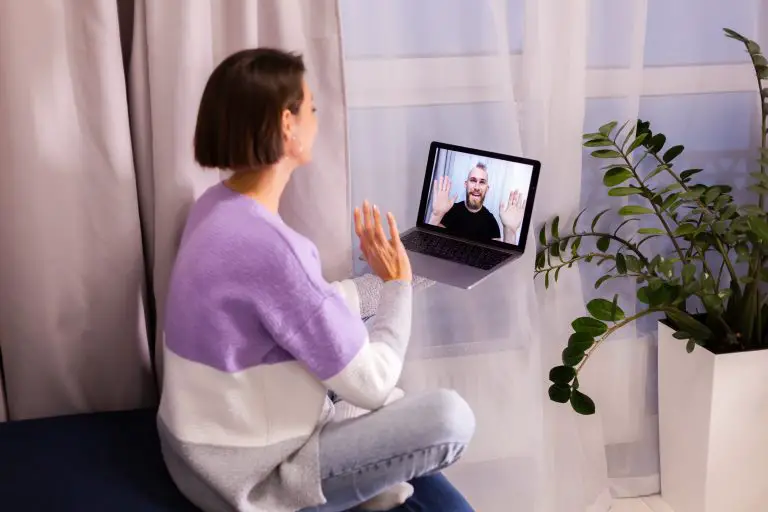Life can throw curveballs at us, and sometimes, we find ourselves in need of a little extra support. But what if that support could come from the comfort of our own homes? Enter Virtual Therapy Sessions, a modern solution to mental health care that's changing lives. In this article, we'll delve into the world of virtual therapy, exploring its benefits, how it works, and why it's becoming increasingly popular.
What are Virtual Therapy Sessions?
Virtual Therapy Sessions are online counseling sessions where individuals can connect with licensed therapists via video chat, phone call, or messaging. Think of it as having a therapy session with your therapist, but instead of sitting in a physical office, you're in the comfort of your own home.
The Convenience Factor
One of the most significant advantages of virtual therapy is its convenience. No more commuting to appointments, sitting in waiting rooms, or rearranging your schedule to fit in a therapy session. With virtual therapy, you can access professional help anytime, anywhere.
Personalized Care
Just like traditional therapy, virtual therapy offers personalized care tailored to your unique needs. Your therapist will work with you to develop a treatment plan that addresses your specific challenges and goals, ensuring you receive the support you need to thrive.
Cost-Effective Solutions
Virtual therapy can also be more cost-effective than traditional therapy. Without the overhead costs associated with maintaining a physical office, therapists can offer their services at a lower rate, making mental health care more accessible to all.
Overcoming Stigma
For many, the stigma associated with seeking mental health support can be a barrier to getting the help they need. Virtual therapy provides a discreet and private way to access counseling, allowing individuals to prioritize their mental health without fear of judgment.
Accessibility for All
Virtual therapy sessions are accessible to everyone, regardless of location, mobility, or physical ability. Whether you live in a rural area, have limited mobility, or struggle with transportation, virtual therapy ensures you can access the support you need.
How Do Virtual Therapy Sessions Work?
Virtual therapy sessions work much like traditional therapy sessions. You'll start by scheduling an appointment with a licensed therapist, either through a therapy platform or directly with the therapist. Once your appointment time arrives, you'll connect with your therapist via video chat, phone call, or messaging, depending on your preference.
Choosing the Right Virtual Therapist
Choosing the right therapist is crucial to the success of your virtual therapy experience. Take the time to research therapists, read reviews, and consider their areas of expertise to find a therapist who aligns with your needs and goals.
Getting Started
Ready to give virtual therapy a try? Start by researching reputable therapy platforms or reaching out to licensed therapists who offer virtual sessions. Once you've found a therapist you're comfortable with, schedule your first appointment and prepare for a transformative journey towards healing.
Success Stories
Countless individuals have found success and healing through virtual therapy sessions. From managing anxiety and depression to improving relationships and boosting self-esteem, virtual therapy offers a path to wellness that's both effective and empowering.
Safety and Privacy
Privacy and confidentiality are paramount in virtual therapy. Reputable therapy platforms use encryption and secure servers to ensure your personal information and conversations remain private and confidential.
Virtual Therapy vs. Traditional Therapy
While virtual therapy and traditional therapy share many similarities, there are also some key differences to consider. Virtual therapy offers greater convenience and accessibility, while traditional therapy provides a physical space for face-to-face interaction. Ultimately, the choice between virtual and traditional therapy depends on your personal preferences and needs.
Is Virtual Therapy Effective?
Numerous studies have shown that virtual therapy can be just as effective as traditional therapy for treating a wide range of mental health conditions. However, the effectiveness of virtual therapy depends on various factors, including the quality of the therapist-client relationship, the therapist's expertise, and the individual's commitment to the therapeutic process.
The Future of Virtual Therapy Sessions
As technology continues to advance, the future of virtual therapy looks promising. With increased accessibility, improved platforms, and growing acceptance, virtual therapy is set to become an integral part of the mental health care landscape.
Conclusion
Virtual Therapy Sessions are revolutionizing the way we approach mental health care, offering a convenient, personalized, and accessible solution for those in need. Whether you're dealing with anxiety, depression, relationship issues, or simply need someone to talk to, virtual therapy provides a supportive and empowering space to heal and grow.
FAQs
1. Are Virtual Therapy Sessions as Effective as Traditional Therapy?
Yes, numerous studies have shown that virtual therapy can be just as effective as traditional therapy for treating a wide range of mental health conditions.
2. How Do I Choose the Right Virtual Therapist?
Take the time to research therapists, read reviews, and consider their areas of expertise to find a therapist who aligns with your needs and goals.
3. Is Virtual Therapy Confidential?
Privacy and confidentiality are paramount in virtual therapy. Reputable therapy platforms use encryption and secure servers to ensure your personal information and conversations remain private and confidential.
4. What Equipment Do I Need for Virtual Therapy Sessions?
All you need is a reliable internet connection, a device with a camera and microphone (such as a smartphone, tablet, or computer), and a quiet, private space for your sessions.
5. How Do I Get Started with Virtual Therapy?
Start by researching reputable therapy platforms or reaching out to licensed therapists who offer virtual sessions. Once you've found a therapist you're comfortable with, schedule your first appointment and prepare for a transformative journey towards healing.




